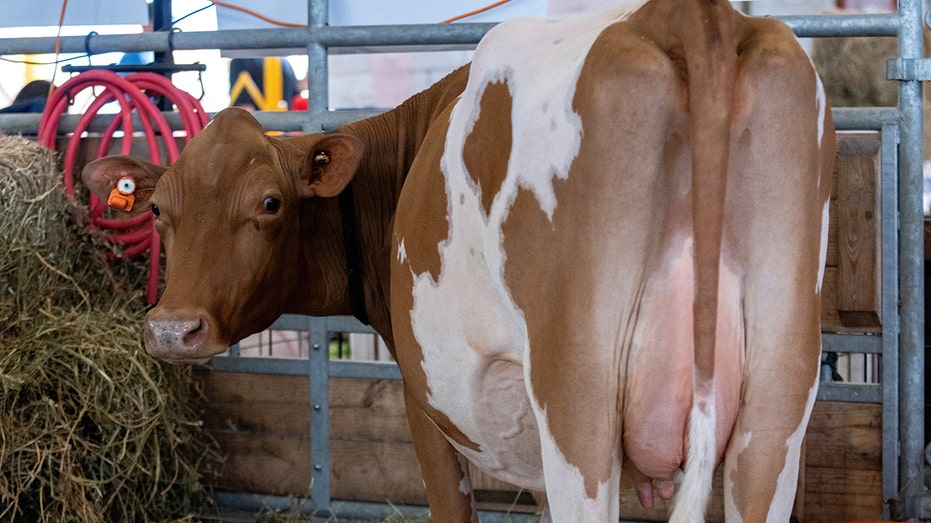Two dairy workers in California tested positive for H5 bird flu, the Centers for Disease Control and Prevention and the California Department of Public Health announced.
The CDC said in a release that the two cases were unrelated – with the farmers working at different dairy farms in California’s Central Valley.
“CDC continues to collaborate closely with California and other state public health officials to support state-run efforts to control the spread of H5N1 from infected animals to humans,” the agency said.
Both individuals experienced mild symptoms, officials said, including conjunctivitis. Neither person reported respiratory symptoms or required hospitalization.
BIRD FLU KILLS 47 TIGERS, 3 LIONS AND A PANTHER IN VIETNAM ZOOMS, STATE MEDIA REPORTS
Health officials said that the risks remain low for the public but has caused “rare, sporadic infections” among people who work with infected animals.
“The virus is widespread in wild birds and has caused ongoing outbreaks among poultry in the United States since 2022,” the CDC said.
In 2024, there have been 16 human cases in the U.S. of bird flu, including the two most recent infections in California.
FIRST CASE OF HUMAN BIRD FLU DIAGNOSED WITHOUT EXPOSURE TO INFECTED ANIMALS, CDC SAYS
Six of the 16 reported human cases have been linked to exposure to sick or infected dairy cows, the agency said. Nine cases had exposure to infected poultry.
The government agency recommended that individuals should avoid contact with wild birds and sick or dead animals and not preparing or eating unpasteurized (raw) milk or raw cheese.
The CDC also recommended that if you work with dairy cows or other animals that could be infected with H5N1 bird flu, to wear personal protective equipment (PPE) when in contact with (or around) dairy cows, raw milk, other animals, or surfaces and other items that might be contaminated with virus.
The CDC recommends that if you get sick after close contact with infected animals, contact your local health department and a health care provider for testing.
Symptoms of the bird flu include eye redness (conjunctivitis), mild flu-like upper respiratory symptoms, fever, cough, sore throat, difficulty breathing, runny or stuffy nose, and muscle aches.
























